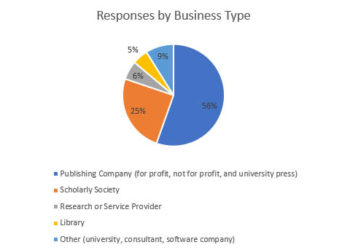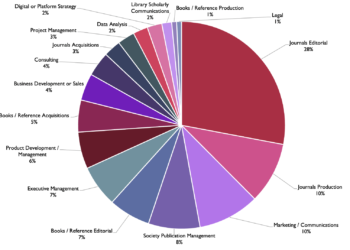Editor’s Note: Today’s post is by Sarah Andrus, Kate Heaney, and Cason Lynley. Sara is Executive Publisher, Clinical Medicine Journals at Mary Ann Liebert. Kate is the Product Manager for the Journal Citation Reports, among other products, at Clarivate. Cason is the Director of Marketing, Sales and Finance for books and journals at Duke University Press
The Society for Scholarly Publishing (SSP) Career Development Committee is pleased to announce the 3rd annual Professional Skills Survey and updated Professional Skills Map. Many thanks to all who participated!
The 2021 survey received 396 responses, an increase of 150% from 2020, and asked publishing professionals at all career levels across multiple roles in the industry to indicate which personal characteristics, transferable/interpersonal skills, and technical/knowledge-based skills are essential to success in their respective positions. Respondents also identified skills they would most like to develop further, highlighting opportunities for training and mentorship in those areas as they advance in their careers.
By mapping identified skill sets to associated roles, we aim to help publishing professionals recognize their core strengths and areas for further development, while encouraging exploration of new or overlooked roles that align with their interests and competencies. The Professional Skills Map is a powerful tool to explore individually or with a mentor to identify necessary skills for a current or desired role. At the industry level, the map helps identify trends over time, showing which skills are emerging and increasingly in demand as the field of scholarly publishing evolves.
The graphs presented here show breakdowns of the most common answers across all survey respondents. However, it’s probably not surprising that, in general, respondents are organized problem solvers with market/industry knowledge whose roles require leadership and data analysis skills.
Among Journals Editorial roles at Publishing companies, which was the most commonly reported group, respondents are strong on organization, strategic thinking, and relationship management with a good understanding of industry trends. Executive Managers across all organization types are strong on relationship management, leadership, and industry expertise, which are also the skills most highly relevant to Consulting. Publishing Company roles in Editorial and Marketing are strongly transferable to Society roles.
Across the industry, publishing professionals are primarily hoping to develop their skills in leadership, strategic planning, and negotiation. There has been an increase over previous years in reported interest in mastering data analysis and market research skills.
To see further how the characteristics and skills apply to particular publishing roles, visit the Skills Map.
Responses by Organization Type
Among 396 respondents, 47% were from publishing companies, 23% were from societies, 9% were from research or service providers, 9% were from libraries, 5% were involved in consulting, and 11% selected ‘other.’ This breakdown is similar to last year as nearly half of respondents, unsurprisingly, are affiliated with publishing companies either private, public or nonprofit.
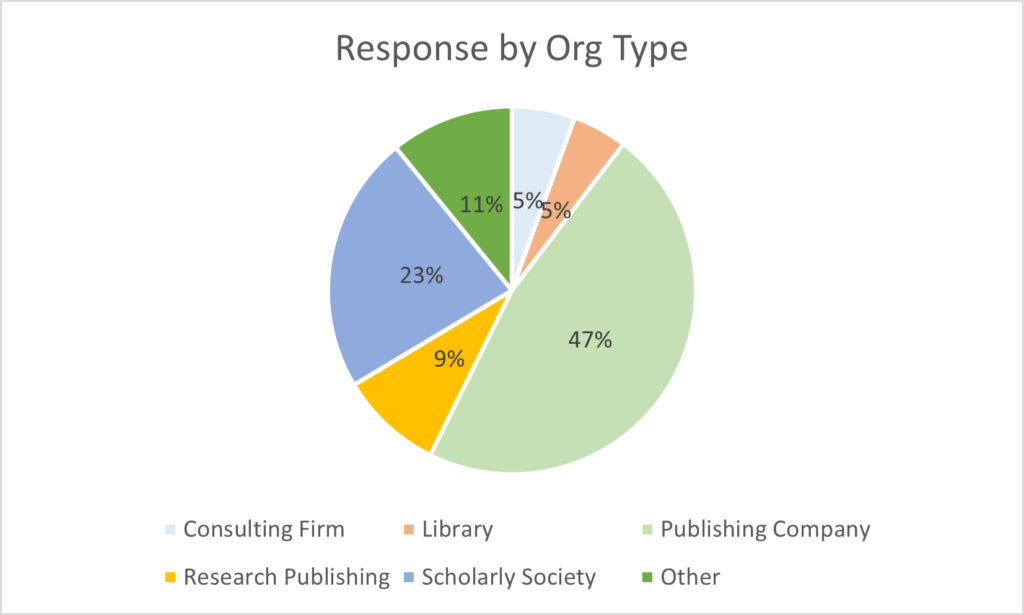
Top Responses by Role Type
| Journals Editorial | 21% |
| Executive Management | 11% |
| Society Publication Management | 10% |
| Marketing / Communications | 9% |
| Journals Production | 8% |
Most Common Personal Characteristics Across Respondents
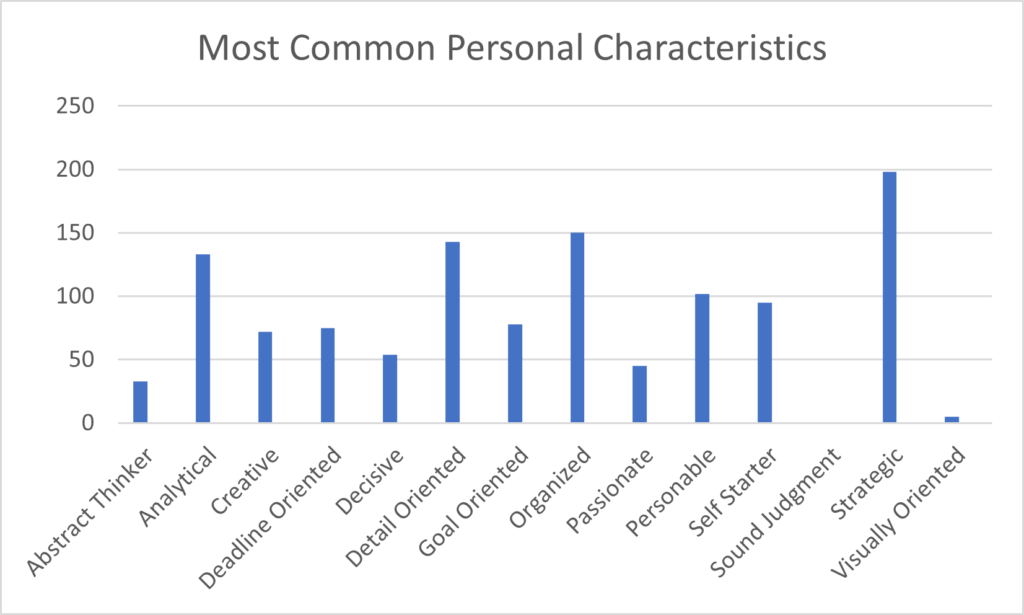
Most Common Essential Interpersonal Skills Across Respondents
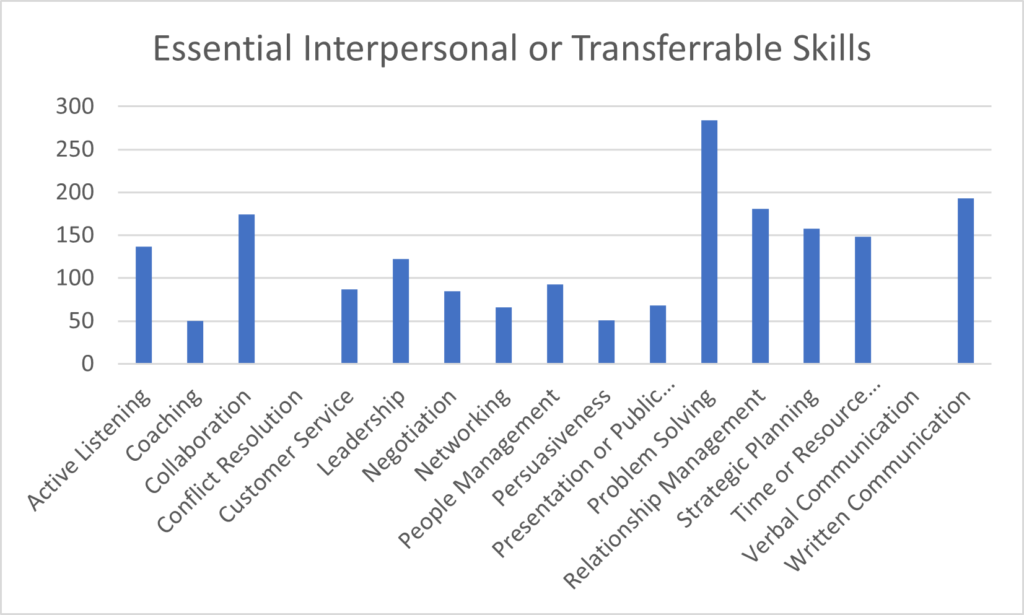
Most Common Essential Technical or Knowledge-Based Skills Across Respondents
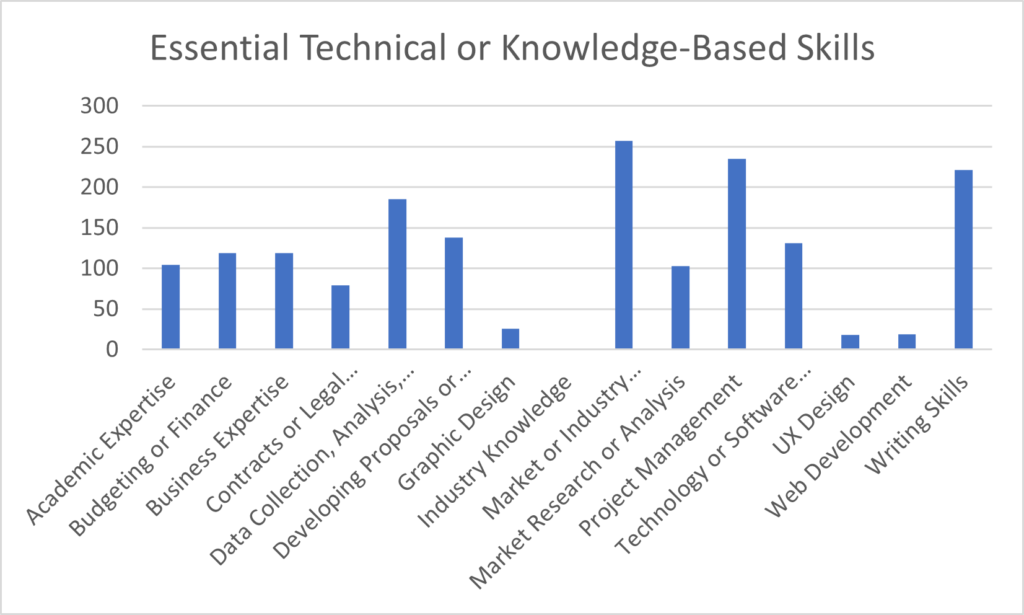
Most Common Interpersonal Skills for Development Across Respondents
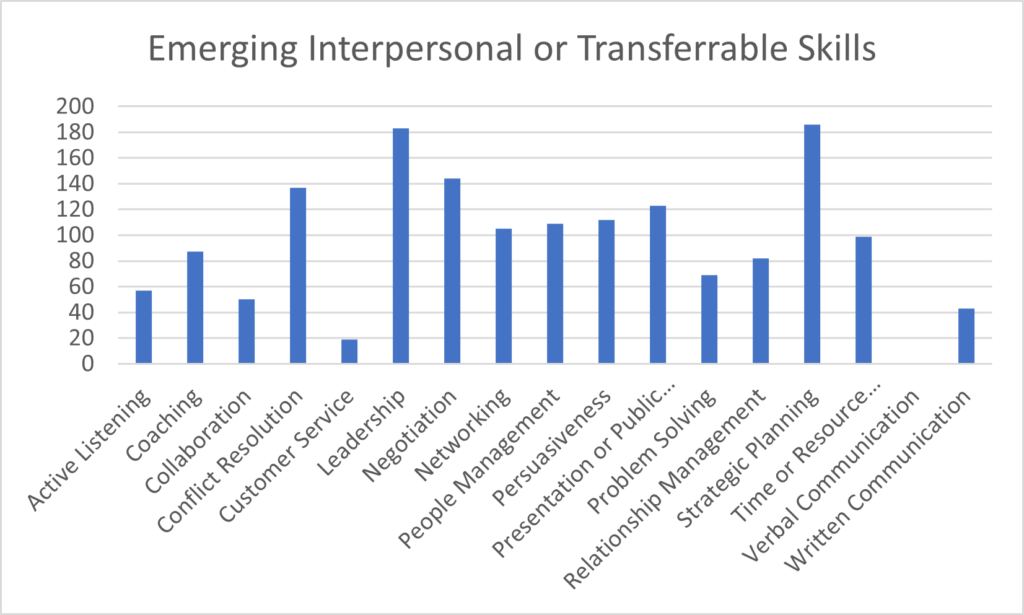
Most Common Technical or Knowledge-Based Skills for Development Across Respondents
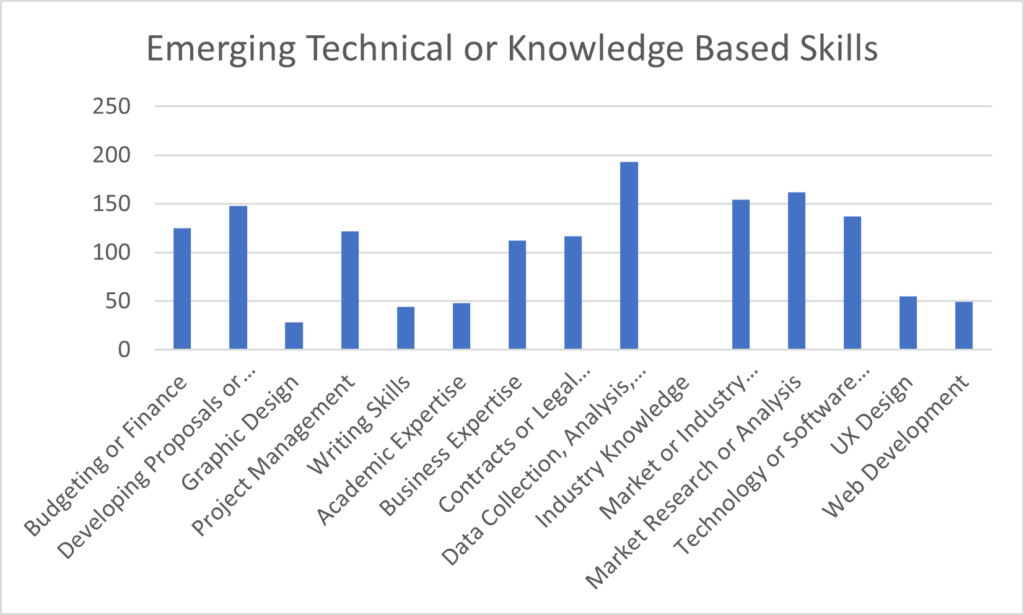
The interactive Professional Skills Map is divided into five organization types at the top level, followed by the professional roles reported by survey respondents (you can find the percentage of respondents listed after each role). Each role can be expanded to reveal the desirable personal characteristics, essentials for success, and emerging needs for that role. Skills and characteristics at the end of each branch indicate the percent of respondents who endorsed that item.
If you are attending the SSP meeting this week, be sure to check out session 2D on Thursday at 3:00 PM: Connect with Confidence: Tools for Early Career Professionals. This session will feature a presentation of the Skills Map as part of a panel discussion on career progression and professional development.
In the meantime, we encourage you to take a look at the updated map and let us know how it has helped you identify skills to develop or caused you to think differently about your career path. We also welcome any other feedback to help improve the survey or map.
Discussion
2 Thoughts on "Results of the 3rd Annual SSP Professional Skills Survey and the Updated Professional Skills Map"
Thanks so much Sarah, Kate, Cason, and everyone else involved in putting this fantastic resource together – super helpful for schol comms professionals at all career stages!
I know this wasn’t the point of this particular survey, but as is often discussion in SK, what this is missing is the enormous number of scholars who do critical work for publishers for free, by being volunteer editors and peer-reviewers. If everyone who contributes skilled work effort to the output of scholarly publishing, rather than just paid “professional” staff, had been included, you would have needed another type of interpersonal “skill” included – willing to work for prestige instead of money.
